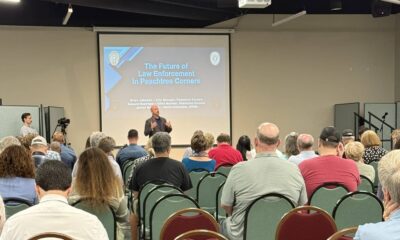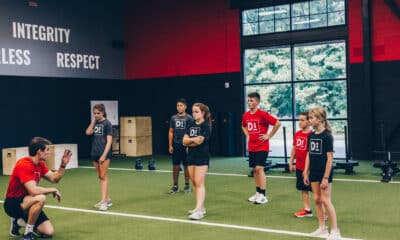Business
How One Company Learned to Pivot Their Business During COVID-19, Egoscue of Atlanta
Published
5 years agoon
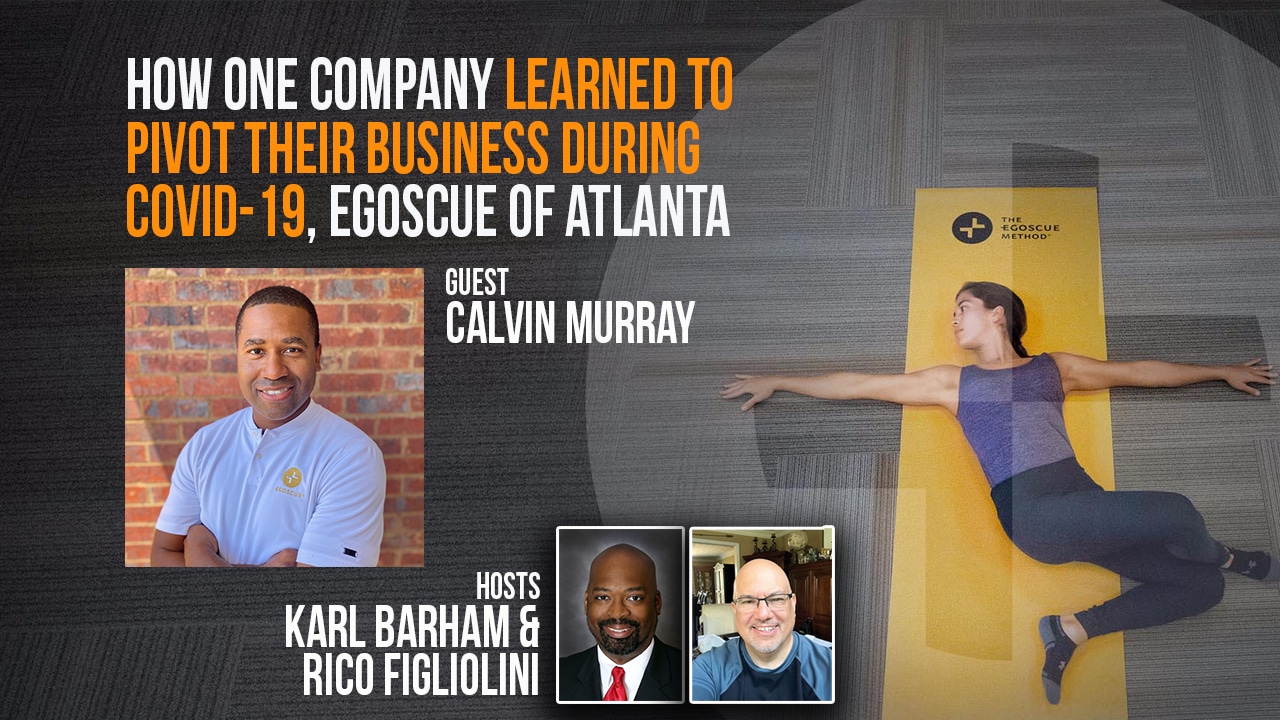
Calvin Murray talks about positioning his business to work in a COVID-19 environment, and how technology and rethinking his approach helped his company Egoscue of Atlanta continue on their mission to eliminate chronic pain and assist those that come to them to enjoy active living. With your hosts, Karl Barham and Rico Figlioliini recorded socially safe in Peachtree Corners.
Resources:
Website: www.egoscue.com/find-therapy/egoscue-atlanta/
Phone Number: (678) 528-2393
Social Media: @EgoscueofAtlanta
Timestamp (where in the show to find the topic):
[00:00:30] – Intro
[00:03:11] – About Calvin and the Egoscue Method
[00:05:38] – First Years of Business and COVID
[00:07:47] – Pivoting the Business
[00:09:59] – Balancing Life
[00:11:33] – Technology in Business
[00:17:39] – Helping People in Pain
[00:20:46] – Government Aids
[00:22:19] – Connecting with Your Community
[00:25:03] – Keeping Your Head Right
[00:27:23] – Plans for the Upcoming Months
[00:28:40] – Closing
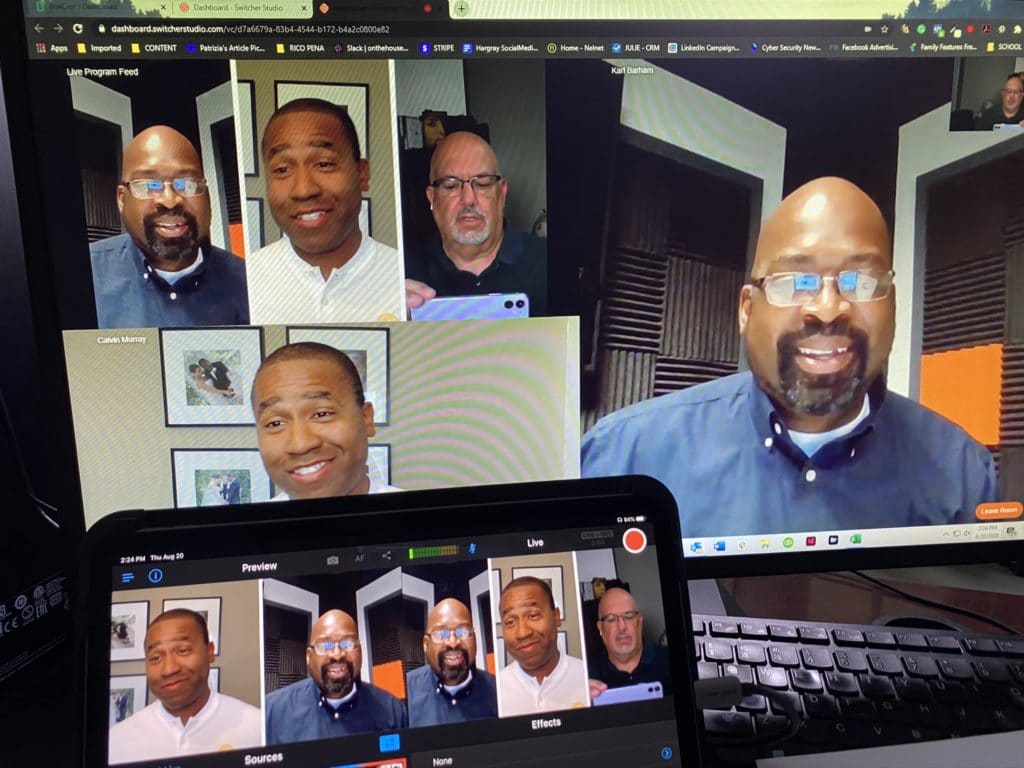
“Our slogan is connect and correct. If we can’t connect with you, then how in the world are we going to be able to help you? It’s not about us at all. It’s all about the person in front of us. Once we do that, we’re able to help correct whatever issues that they do have going on with their bodies.”
calvin murray
Podcast transcript:
Karl: [00:00:30] Welcome to the Capitalist Sage Podcast. We’re here to bring you advice and tips from seasoned pros and experts to help you improve your business. I’m Karl Barham with Transworld Business Advisors. My cohost is Rico Figliolini with Mighty Rockets Digital Marketing, and the publisher of the Peachtree Corners Magazine. Hey Rico.
Rico: [00:00:49] Hey Karl. Good to be here.
Karl: [00:00:51] Well, I know a lot of people are reading the magazine this month. I’ve seen it all over doing a great job of bringing stories to the community. Why don’t we talk about our sponsors today.
Rico: [00:01:02] Sure. Our lead sponsor is Hargray Fiber. They’re a fiber optic company that provides services in the Southeast, especially here in Peachtree Corners and Lawrenceville these markets, but certainly Macon, Tallahassee, a whole bunch of places throughout the Southeast. They’re dealing with small companies as well as larger companies that provide smart office, smart office technology, to be able to get people teleworking and corporates, corporations, to be able to do the things they need to do to be able to work smarter and fast in this environment. So they’re not like that the cable guy, these guys are out there, they’re in the community, helping out. Working with every place that they’re in, and they’re reachable and they’re always there for you. So check them out. HargrayFiber.com/business, and you’ll see what they have. They also are doing a promotion that, let me share that with you. It’s a thousand dollar gift card. So if you’d be, if you ended up doing a, put that out in front. If you end up calling them up or checking them out there’ll be able to, you might be able to qualify for that thousand dollar gift card as well. So thank you for Hargray to be our lead sponsor.
Karl: [00:02:12] Yes. It’s more important than ever that folks get their internet right and Hargray Fiber is here to help business owners in the community and residents alike, so thank you for them again. Today’s guest is a good friend, Calvin Murray. Who’s here to talk to us about how small business owners are managing COVID-19. Calvin is a co-owner of Egoscue of Atlanta based in Sandy Springs, Georgia. And he’s here to tell us a little bit about his journey to entrepreneurship. How he’s dealing with COVID-19 and some of the plans for the future. Hey Calvin, how you doing?
Calvin: [00:02:51] Karl, Rico, I’m doing great. Thanks for having me guys.
Karl: [00:02:54] Oh, no problem. Now I know for a lot of people, Egoscue’s going to be new to some people. So I’m going to ask you to introduce yourself, help them with the pronunciation and the spelling of it. And tell us a little bit about what you guys do.
Calvin: [00:03:11] Sure thing, so the Egoscue Method, is a different way of looking at the body. You look at the body as a whole, a lot of practitioners do. But for you in particular, Karl, if you said, Hey Calvin, my right knee has been hurting for five years. I haven’t been able to find the relief that I need. To me or to the Egoscue Method, we know that that right knee is a symptom.
There’s something else in your body that’s dysfunctional and that’s causing that right knee to hurt. And it’s our job to find that dysfunction in your body. You may be a dentist, or you may sit for a living, but that’s not the reason why that right knee is hurting. Something else in your body is the reason why your right knee is hurting. So we figure out what it is and we start to treat from that area and help you create balance and alignment in your body. What do you know that right knee pain just goes away. Egoscue of Atlanta is the name of our company. We’re a franchise and we are originally from out of San Diego. Pete Egoscue, that’s where the last that’s where the name comes from, his last name is how it began. He was injured in Vietnam and could not find the relief and figured that he had to do it on his own. He created the method and lo and behold, he’s doing great today. Pain-free and we helped so many other people live a pain free and active lifestyle as well.
Karl: [00:04:28] So tell me a little bit about how you and your wife came to this or chose this as an entrepreneurial venture for you and tell us how it’s been so far.
Calvin: [00:04:38] Yeah, funny enough. I moved here in 2004. I’m a Georgia native and I’m from Augusta, Georgia. Haven’t been back since all right, outside to see our parents. But I started in the security business, a great mentor in that business who is actually president of a large security company now, and still in my life as a mentor. And then I transitioned into the securities business while worked for a major broker dealer and really got a taste of what running your own business looks like. In 2011, my wife and I had an opportunity to franchise. And, a few years ago we decided, Hey, let’s serve in a different manner and let’s run this practice as a family practice versus us doing two different things. So we planned for it and early last year, we made the leap. And we both work together now. You know, one run’s therapy. And I run the operations and the marketing, as well as therapy.
Karl: [00:05:38] Oh, that’s fabulous. Well, as you started the business, over the last couple of years, what were some of the things that you learned about yourself and about business in your first few years?
Calvin: [00:05:51] I’ll tell you every, almost any question that you asked me about learning about myself comes back to it not even being about me. It’s about the people that work with you. And it’s about our clients. So what am I doing on daily basis to put them first, my clients and to put my employees first, and quite frankly, put my wife first as well. Once I started to figure that out, things really changed for the better for our company.
Karl: [00:06:22] Wow. So this year, 2020, I don’t think anyone could have predicted what 2020 would look like? I’m curious, when you first heard about COVID-19 and the pandemic, what were you thinking about it and how are you thinking about the impact on your business?
Calvin: [00:06:44] Well, when I first heard about COVID-19, it was still football season in 2019. So, I was more focused on that and we wondered, Hey, is it real? Is it a media deal? You know, what is it? You know, we just didn’t know, it wasn’t here yet back in December and November.
And by the time the new year came around, it started to get closer to home. Even in February, in March, it was closer to home but it was still a question of, you know, are we gonna, is it going to affect us here in the States? That went from about five miles an hour to a hundred miles an hour in about three days. We couldn’t believe how fast we were converting from having all our clients come into the clinic to saying, Hey, our doors, we have to close our doors so we can’t be in here. We can’t be around each other. We can’t be in groups. You know, we have to pull our children out of school. And just continue to fill in the blank. It happened so fast.
Karl: [00:07:47] Yeah. If you think about it, your business as a location where people would come in and you would, you know, hands on approach to helping people dealing with their pain and so on. When you closed your doors or knew you had to close your doors, what were some of the ways you were thinking that you could or have been able to pivot your business?
Calvin: [00:08:12] Karl, I have to tell you that we were super confident in pivoting our business. The unique thing about the Egoscue method, in our method for helping people get out of pain and stay out of pain is, we don’t touch you. We don’t have to touch you. So for us, changing from clients coming into our clinic to operating over zoom, operating over Skype teams, whatever it may be. We were able to do that quick, fast, and in a hurry. Now here’s the deal, we had already started to do that years before. We were doing therapy over Skype years ago. And about 20% to 25% of our business was due to Skype even before the pandemic. It was all about converting everyone from, you know, being in person to Skype or zoom. Going forward, that was a bit of a challenge, but we made it happen. Even to the point where some people say, look, we’ll never come back until your clinic again, I don’t have to sit in traffic. I just want to continue to do it from home.
Rico: [00:09:17] Did you get a lot of support from the corporate parent of the company?
Calvin: [00:09:22] Oh my goodness. Being in the Egoscue family is like being in no other family that I can think of franchise wise. Pete Egoscue every single Friday, we’re on a call with all of us from all the owners. But not only all the owners, all the therapists around the company as well. I mean, the guy’s a visionary and everyone’s found so much motivation in him calming the masses, throughout the entire country and the world because we have clinics in Japan. I just, I couldn’t be a part of a better family, a better franchise.
Karl: [00:09:59] Well, so a pandemic hits and leadership matters. Bringing people together and coming up with a plan to help support the whole network was a key bit of how you were successful. I’m curious, you’ve got young children, I know. How do you manage balancing the new constraints that so many people are facing? You own your own business and both you and your wife work in the business you’re kids, that you’re currently, you know, that have to, they can’t go to camps and different outlets. How do you find managing that? And how’s that impacted how you work?
Calvin: [00:10:40] I can’t say that I’m managing it well or balancing it well. It’s a, everyday is a new adventure. But it’s so much fun to figure it out every single day. With my wife and I, you know, we’ve created a pretty good system on teaching our children in the morning with digital learning. Or, and then, you know, getting work done in between time or we’re getting work done at the end of the day. So much communication has to happen within our household. Not only communication with her and I, but communication with our children and communication with our staff, as well as communication with our clients. It all has to be on par and it also, it all has to be up to date. And you have to be clear because time is of the essence with everything that we do. If it’s not clear, then we have issues.
Karl: [00:11:33] There’s an interesting thing that’s happened as we’re all leveraging technology to do work. And I understand a lot of knowledge workers make sense that they work, they can have access to their computer. In your type of work how are you able to service your clients through these different technologies and help them with their pain and posture. What does that look like?
Calvin: [00:12:00] I mentioned earlier that we operate over zoom, but we also operates under any of the different other ones that they feel comfortable with. A good amount of our clients are, 70 and older and not everyone 70 and older necessarily wants to deal with a computer or deal with zoom. But we’re able to help them navigate through that or help them just navigate through what they already have. So take for instance, a new client that calls in, Oh, hey, this is Sue. Sue, I see that you’re on an iPhone. Let me take a look at that. I can immediately hit FaceTime. And make it easy for her. All she has to do is answer the phone. If she’s on, if she has an Android, I’m able to help her download Skype or help her download zoom. Whatever it may be, we’re able to help them and walk them through the technology in order for them to use it. And in order for them to make it easy, not sit in traffic and not get out into the public where some people just prefer not to be right now.
Rico: [00:13:03] Has the technology helped you in other ways, like, analytics, maybe? I mean, what aspects that surprisingly has helped maybe in what you’re doing?
Calvin: [00:13:14] Yeah. We use quite a few different softwares in order to create data points so we can set metrics for ourselves. Quite frankly, all social media is one of them. Our social media, it gives us new data points in order to continue to push out content to people that is interesting to them in order for them to want to be, interested in what it is that we do. But internally, there are so many data points. We use MindBody for scheduling and revenue and things of that nature. We also use Constant Contact. There’s so many different data points that come from that, that allow me to create different metrics for our therapists, for follow up and also for projections going forward.
Karl: [00:13:58] You mentioned a couple of things there. How did you learn to use some of those tools yourself? Did you get help on constant contact, mind and body, some of the tools that you’re using in your business. How did you learn to come to master that.
Calvin: [00:14:17] It’s trial and error. If I say that I’m an expert in that, then I would not be telling the truth. And that wouldn’t be clear either. I’ve leveraged other business owners, and within our franchise. I’ve leveraged other therapists within our franchise as well, to help me walk through some of this different stuff, some of the software that we have. But the other thing about software is, you know, once you start play around with it, you generally are able to figure it out within the next 30 minutes to an hour or so.
Rico: [00:14:46] Is the, is the mind and body, is that part of the franchise setup or is it like a whole separate software outside?
Calvin: [00:14:53] It is. It is part of the franchise set up. So we all, you know, from San Diego to New York, to Atlanta, to Jupiter, Florida, we all, we all use.
Rico: [00:15:02] So let me ask this as far as business works, that makes it great for appointments for bookkeeping, for tracking hours of not only the members, but also the therapist that you have, I guess. Does it wrap all that together for you?
Calvin: [00:15:18] Wraps all of it together for us.
Karl: [00:15:20] Yeah, MindBody is one of the more popular systems that’s used in a lot of fitness, health, businesses, or for a lot of reports and data. Can you describe, how do you use data from something like that and other data points? What type of data do you use to help you make business decisions?
Calvin: [00:15:40] Well, before COVID we’d use it to project, what next year looked like, what the next month would look like. You know, and even what the next week should look like for better terms. These days, we’re trying to figure out what revenue looks like weekly you know, quite frankly. Now the good news is since March, I mean things have just progressively gotten better. And it’s all because of things that we decided to do, once COVID hit. One thing was, we felt super confident in our ability to pivot. So our ability to pivot did not take up so much time. With that I was able to start to build other referral alliances. I said, well, we have good referral alliances. This is a great time to build more. What can I give away to people in order to start building good referral alliances? During this time we start to coach our girls, coach our therapists a whole lot more. Because we started, we’re already showing our humanity with them. Because when you’re in a small company like us, you know, people want to know that you understand them. They come to work everyday and they loved the Egoscue method and they love to practice it with our clients that come in. But at the end of the day, I mean, I have a family at home. I mean they come in and they work, but they want to get paid. In the end they want to interact with people who get them. People who feel where they’re coming from. And during COVID, they want to interact with people who feel like they’re in the same boat. You know, just because I’m the manager doesn’t mean that I can’t show my humanity to them. So, coaching the
girls has become like the catalyst to the growth that we’ve seen. I owe that all to my wife. She’s a much better coach than me.
Karl: [00:17:39] You know, you’re hitting on a couple of things that I think I saw a lot of the more successful business owners doing. That shift you made with using data to start projecting and forecasting weekly was one of the things that people started doing to understand their cash flows and on the demand was coming in there and using information and data. But you spent time in the years before to prepare yourself, to be able to have that. You weren’t creating that all of a sudden, figuring out how to pivot. It would have been much harder, probably, for you to be able to go to online if that wasn’t being built years ago. The capability to turn that technology on and the systems to support that would have taken some people months, possibly, to do that and planning for that there. But one of the things that I’m really interested in with all the people, COVID-19 created a major behavior shift where people aren’t going into offices anymore. They’re working from home that may not have been optimized for working from a desk and so on, which may lead to new stresses on the body that’s happening there. What are areas where you think this could, the market may have changed and how are you reacting to meet as customer preferences might be changing or the demand might be changing?
Calvin: [00:19:10] Sure thing. In our clinic we’re starting, we were already seeing a lot of back pain. And a lot of neck and shoulder pain and hip pain. Now we’re seeing an increase in headaches an increase in neck pain and an increase in carpal tunnel and in elbow tendonitis. And we attribute a lot of that to people sitting at home, they’re working, they’re on their video games. They’re sitting, they’re sitting, and they’re sitting. And the whole common denominator I can put any numerator up there, but the common denominator more than likely will be that they’re sitting. And anytime you sit a lot, that’s going to change the position of your body. Positions create conditions. So if you sit for five years straight and then you start to develop carpal tunnel or hip pain, then the position that you put your body in for five years started to create a dysfunction that made that hip or that, or those hands to start to hurt. Not only that we’re seeing the mental shift not only in adults, but also in children as well. We are not therapists in our clinic. We’re not therapists at all and not qualified for that. I’ll tell you what, there’s a lot of people that come into our clinic and we offer such a safe and quiet and soothing place that they just come in and talk. Just wanna talk about things. And we’re there to listen. Our slogan is connect and correct. If we can’t connect with you, then how in the world are we going to be able to help you? It’s not about us at all. It’s all about the person in front of us. Once we do that, we’re able to help correct whatever issues that they do have going on with their bodies.
Karl: [00:20:46] Have you been able to leverage any of the government programs through this care act, PPP loan, EIDL loans, family first act. How have you interacted with those programs and has it helped you navigate through this past summer?
Calvin: [00:21:06] Yeah, part of being a leader is that was not my expertise. Going out and figuring out what the SBA looks like what a loan looks like. However, I did reach out to people who were experts. Quite frankly, Karl, you were one of those people that I reached out to. He
just volunteered so much information. It was so super helpful for me in our business and our family. So we were able to take advantage of the PPP loan. We were not able to take advantage of the EIDL loan or any other ones. But we were kind of late, not in getting to the party. We were early filling it out, but late receiving the funds. But soon after we received the funds maybe a month later or so, the policy changed. And so we didn’t have to use it in eight weeks. And that was great because we really didn’t want to use it in eight weeks that helps. That was great.
Rico: [00:22:01] That was a great change in that, right? Eight weeks versus what was it? 24 or 30 weeks later. I mean, if you had no customers those first two months, it’s kind of odd to like, figure that, right. I mean, not at your business, but certainly in other businesses it was like that.
Karl: [00:22:19] That’s one of the things that I saw really fabulous happening here in the United States, people were reaching out and helping. No one knew what the answers were. Hell, Congress didn’t know what the answers were. But quickly, business owners and neighbors started talking, communicating, helping people figure out what to do, because I remember that week in March, the president went on air on a Wednesday and said, we’re going to start needing, shutting down. And the state started shutting down all of a sudden. And I think it started was, you know, three to four weeks and we’ll be back to normal. And meanwhile, business owners have to make plans. Do I order more inventory? Am I going to be able to open? What do I do with my employees? And it was a really, really nerve wracking time. But I think the support everyone provided to each other really helped in those initial weeks and months. And now, you know, as we go into their future, what are some of your thoughts on how the areas you need to focus on over the next, you know, 6 to 12 months. Now we know this is going to be with us for awhile. There might be some vaccines coming in from various places, but we don’t know when and how fast. Are there things that you learned during this that you think could help you not just survive through the next 12 months, but maybe even really thrive and excel?
Calvin: [00:23:45] Sure. You know, the first part of your statement, it really hits home because, you know, with some friends, I would say, look raise your hand if you’ve ever led a business or your family or a government agency through a pandemic, civil and racial unrest, inside of an election year. Nope. No one in any room is gonna raise their hand. So I generally just hold, are there any other individuals who are in leadership roles harmless? Because those guys have never navigated through anything like this, and we’re all just learning as we go. That’s why it’s so important to ask advice. That’s why it’s so important to reach out to people in positions where you aren’t necessarily an expert in it. For us, I’ve learned that I need other income streams. There is an opportunity for us in B2B. We operate in a BTC format. And just talking with other business owners within Egoscue method, you know, we’ve come up with a different way to start a revenue stream outside of just the consumer, but with other businesses as well. And that will be just with other practitioners who decide to get on board with that.
Karl: [00:25:03] Oh, that’s fabulous. I think that’s the way to look at the future as where are your opportunities and putting together a plan and making a decision to prepare yourself, to be able to capitalize on it. And that’s where I see a lot of small business owners are figuring that out. And that’s probably the advantage of being smaller. You don’t have to go to a lot of people to get buy in. You can make those changes quickly and try to implement them within your business and in your organization. So I’m curious, you and I have known each other for a little while. And it would be hard for me not to mention that we are basketball players that play at a local game at the Y during the week. And I’m curious, you know, as this goes forward there, you know, how are you going to navigate, you know, outside of the work environment, keeping yourself fit? What are some of the other things you’re doing to keep your head right? Because if your head isn’t right, it’ll be hard to be a good business leader. It’ll be hard to be a good father, husband, et cetera.
Calvin: [00:26:11] You know, you just hit, you struck a chord with me, Karl. I miss playing basketball so much. I haven’t played basketball since March. And that was, that was my deal. There was a lot of our deals. I mean, we had like 40 guys that we played with off and on. Coming in and out of the gym. So I missed playing gaps with, I missed playing basketball with all those guys, except for Jesse. But other than that I totally miss it. But it’s funny enough with my son’s school. We, you know, they have PE inside the curriculum here at home. So we just all do it as a family. He’s six years old and he’s just a jock. If you asked the kid, you know, the other day he told me, Texas A&M beat Arkansas. This is this. I was like, no, I looked it up. I said, you gotta be kidding. How’s this getting know this, he’s six years old. So we play a lot of ball. He rides skateboards, he rides you know bikes, and guess who has to do it with him, this guy. So, we live in a neighborhood with a basketball court, tennis courts and a swimming pool and things of that nature. So, I’m able to you know, stay in a little bit of shape with that, but I can’t wait to get back out there on the basketball court.
Karl: [00:27:23] I know. So many people, whatever their passion or sport or activity was not only was it the physical exercise piece, but the community that that’s built around here in greater Atlanta, Peachtree Corners, all over, that people miss. So it’d be great to get back to that. So why don’t you tell us, what do you have going on in the upcoming months? Anything you have planned?
Calvin: [00:27:46] Yeah. We just started a second location. We are down in a neighborhood called Serenbe. It’s actually a community on the edge of Atlanta. If you head down, 85 South. Right there in Chattahoochee Hills is where you will find Serenbe. And this is a nice little unique community, and you can find us there on Wednesdays in the motto area of Serenbe. So just started that here recently. I was so grateful to be able to find the opportunity in the face of crisis. And not only that, we’re going to hold it an event where we’re offering a free posture assessment for people who are going through different chronic pain issues, doing that virtually. And we’re also doing it in the clinic and they can find the information on social media @EgoscueofAtlanta, on Facebook and LinkedIn.
Karl: [00:28:40] Why don’t you tell us the other ways if folks want to reach out and learn more about you, what’s the best way to reach you?
Calvin: [00:28:46] You can reach us directly at our phone number (678) 528-2393 and AtlantaAtEgoscue.com. And the way you spell Egoscue is, let’s see if I can do it phonetically. Echo, Golf, Oscar, Sam, Charlie, Uniform, and Echo.
Karl: [00:29:15] Oh, that’s great. That’s fabulous. Well, again, thank you Calvin Murray, co-owner of Egoscue of Atlanta. Just sharing, being willing to share your experience. It’s a scary time for a lot of business owners. And I know you’re very busy and you’re trying to navigate a lot of stuff, but I think you willing share that. Just know that other people are going through same thing you’re going through and they’re trying to figure it out and they’re going to be successful if they continue to do the things that have been proven to work, innovate, listen to your customers, adapt, do those types of things and also take care of yourself. Spend time with your family and do those things to make you the best business leader that you can be so I really appreciate that. I’m Karl Barham with Transworld Business Advisors this is another episode of the Capitalist Sage. Rico and I have been ecstatic to continue to share stories of local business owners here in the community that are doing just fabulous things in the community. Figuring out how to be successful and sharing those tips and advice with other people. At transworld, we’re continuing to grow and expand, helping business owners navigate the path to exiting their business or growing through acquisitions. A business brokerage is here to help people that are trying to figure out what’s the right path forward for them and their business. And you could reach us online at www.TWorld.com/Atlanta-Peachtree. Rico, why don’t you tell us a little bit about what you’ve got coming up?
Rico: [00:30:53] Sure. And before I even get to that I just want to. It’s always the same thing it seems. You know, the biggest thing that every entrepreneur and business owner shares with us is that they’re listening to the client right? Lori Denton did that on the last show, shared that with us as well. I mean, that’s where successes is, right? If you listen to the client, you’ll be able to, you’ll be able to do marvelous and miraculous things, both for your business and then for the client, it seems.
Karl: [00:31:22] Client and employees, the connection. I noticed that theme too. Connection with their employees staying through the crisis and beyond are going to help you be successful in the long run.
Rico: [00:31:33] Absolutely. And that’s, that’s where it’s at right? Cause otherwise, why are we here? Otherwise, we’re just working, right? You’re not building relationships. It’s not worth it. Mighty Rockets is my company. I also publish Peachtree Corners Magazine six times a year. the last issue just came out a week ago. It was a diversity issue on the cover story. In fact, Karl was one of our profiles and one of the seven profiles we did. It was a good issue. I think it’s been well received next issue is the October, November issue. So we’re working on that now. So that’s a pets and their people, talking a little bit about, you know, Halloween, Thanksgiving,
and probably the things we’re thankful for. I think that may end up being one of the major features in there, talking to different people and asking them what they’re thankful for this time of year. So we’re working on that. As far as Mighty Rockets, Social media marketing is what we do. Product videos, podcasts, a variety of things, managing social brands for companies. So reach MightyRockets.com. And as far as our lead sponsor, again, Hargray Fiber. I just want to say thank you to those guys for being a sponsor of the family podcasts that we do, and you can find out more about them at HargrayFiber.com/business. Let’s bring back in Calvin. Thank you. You’re just terrific. I appreciate you being on the show with us.
Calvin: [00:32:59] Thank you so much guys. I mean, this was awesome. Thank you for the invitation. I’m truly grateful that you invited me to be on.
Karl: [00:33:07] Thank you very much. You’re going to help a lot of people, especially after dealing with all those kids home learning. You know, a lot of people that’s going to have more than pains in their backs.
Calvin: [00:33:19] Yes, for sure. The other place. So I’m sorry, Rico?
Rico: [00:33:23] I was going to say, we’re at the end of our time together. So give us the last word there Calvin.
Calvin: [00:33:29] Guys, keep moving your body. Whenever you stop moving that that’s when you become sedentary, that’s when things set in. Even if you just get out and walk a half a mile, walk a quarter of a mile, do it once, do it twice, do it three times a week, whatever you do keep moving. So you don’t have to come see me.
Karl: [00:33:50] Thank you very much. Take care, everyone.
Related
Business
Peachtree Corners Grows Business Opportunities Through Economic Development
Published
1 week agoon
May 6, 2025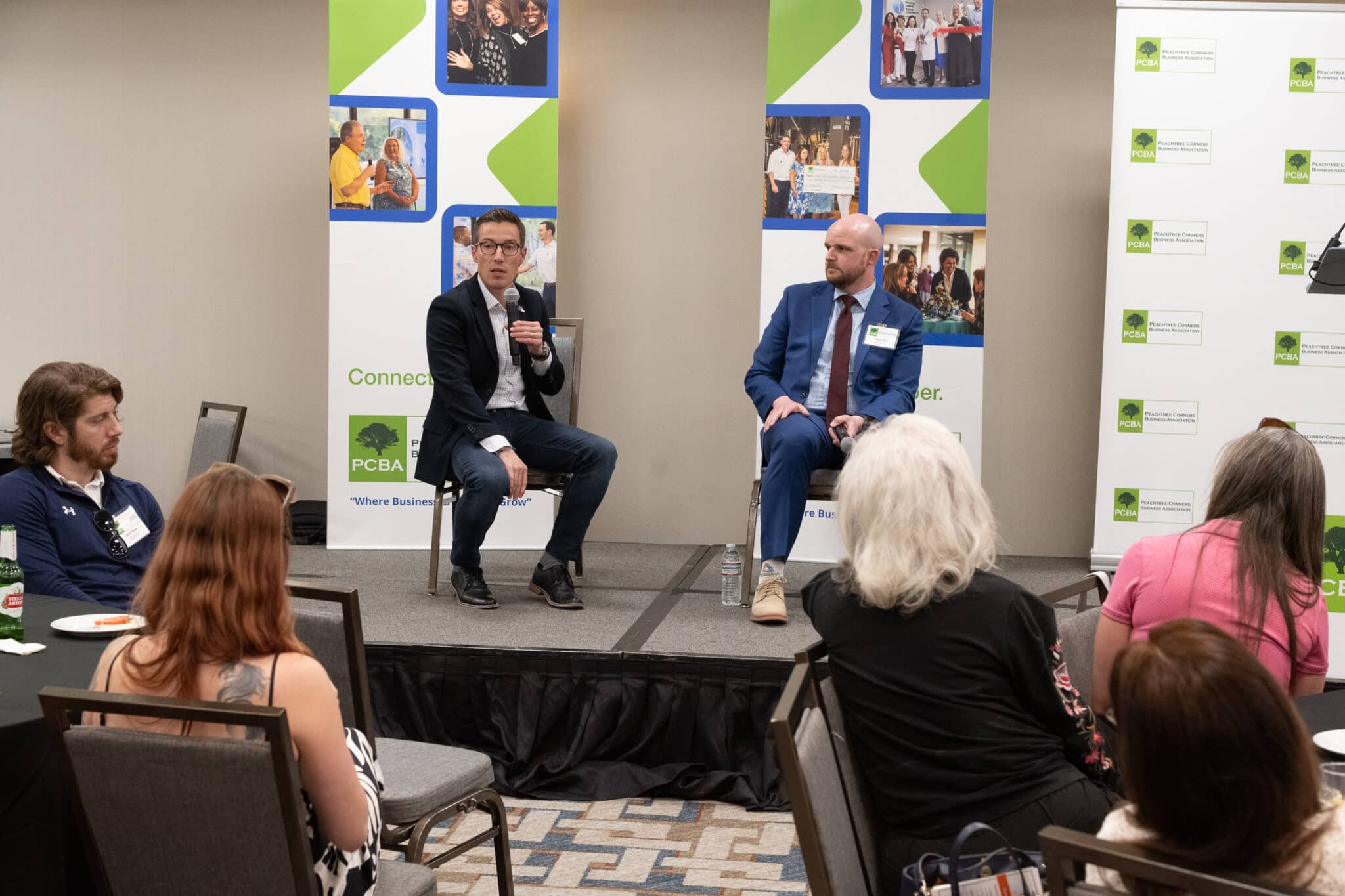
Most residents and business owners in Peachtree Corners probably think they know all about the economic development and strategic planning of Peachtree Corners, but do they really?
Peachtree Corners Business Association invited Peachtree Corners Economic Development Director Betrand Lapoire and Partnership Gwinnett Director of Economic Development Andrew Hickey to its After Hours Speaker Series on March 27 to discuss the city’s growth from a 1971 master plan to a bustling city with 42,000 inhabitants and 40,000 jobs.
Key points included the importance of business retention and expansion, with 24 projects last year creating 1,600 retained jobs, 1,600 new jobs and $250 million in new capital investment.
The Curiosity Lab, a world-class innovation center, was emphasized as a significant attraction. The city’s zoning and infrastructure plans were also discussed, focusing on balancing office and residential development to maintain a vibrant, sustainable community.
Matching jobs to residents
Although Peachtree Corners is just a teenager in terms of being an incorporated city, the foundation for this vibrant, fast-paced economic hub was laid more than 50 years ago by technology pioneer Paul Duke.
“Peachtree Corners was the first master-planned, business innovation technology park in metro Atlanta,” said Lapoire. “It was in response to the brain drain of technology with Georgia Tech graduates leaving the area.”
While the city may have a small-town feel, it’s the largest in Gwinnett County by population, but not land mass, he added.
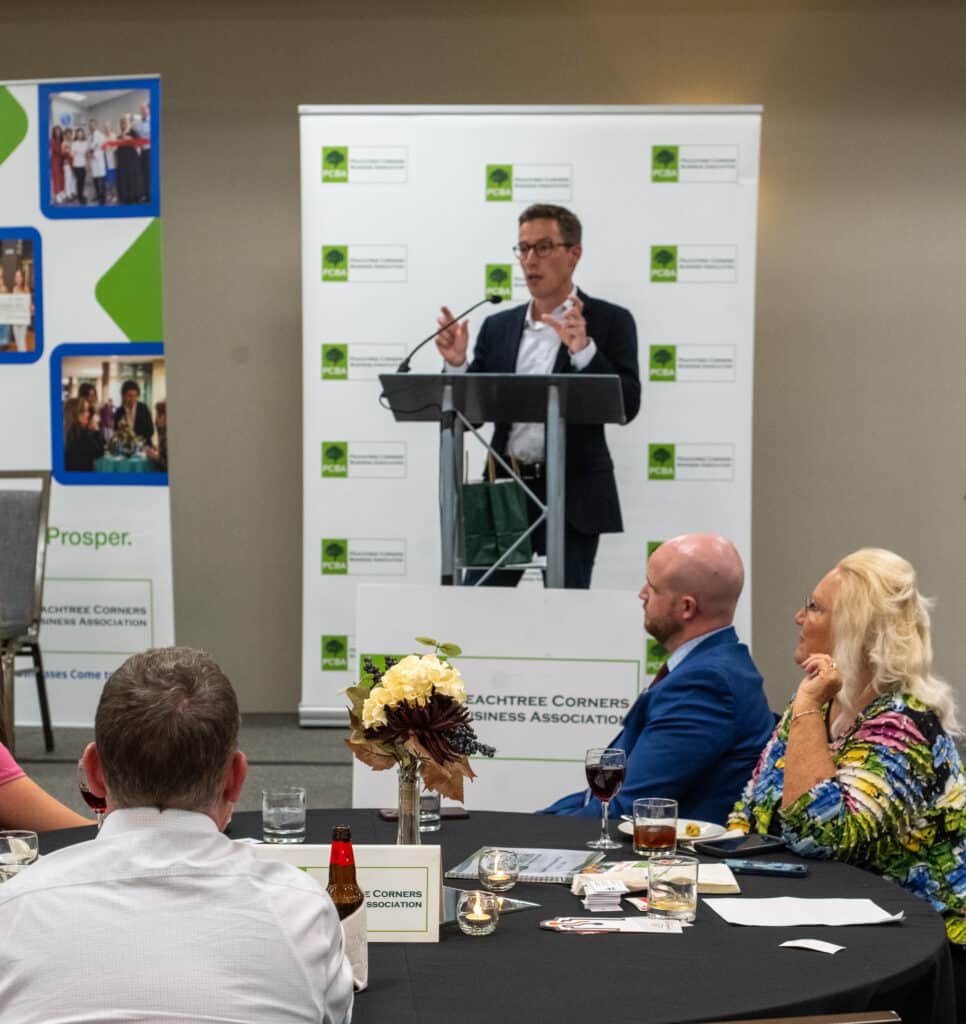
“The city started from a commercial, industrial, R&D base and then was expanded around it,” said Lapoire.
Though home to more than 42,000 residents, most of the jobs in Peachtree Corners are filled by people who live outside the city, he added.
“So we have this interesting mismatch, in a way, although not unusual,” said LaPoire. That creates traffic and transit issues. So that means that one of the solutions is to create more jobs here to fit the profile of the community.”
He presented charts that show professional services, consulting and engineering as the largest job categories. The next tier of businesses are wholesale and manufacturing.
“So we have a good mix of industry,” he said.
A five-year plan
The city has a five-year economic development plan (2023-2028) that outlines strategies for attracting and retaining businesses, with education and workforce development being key components.
Partnership Gwinnett has similar goals as Peachtree Corners, but on a larger scale.
“We are the county’s sales and marketing arm for all 17 cities now, and we receive funding from both municipal sources as well as existing businesses here — both in Gwinnett and outside of Gwinnett as well,” said Hickey.
He shared how Partnership Gwinnett is designed to drive a lot of major corporations toward doing business inside and with Gwinnett County.
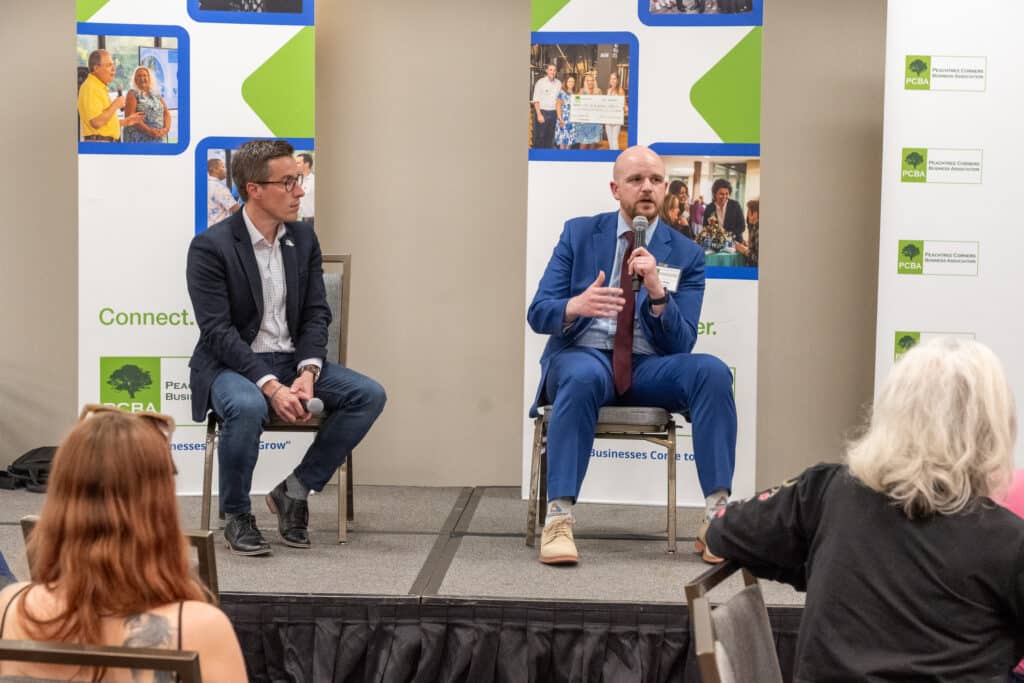
“One of the biggest things that we talk about that I’m sure it seems like most of us here, if you live here, you work here, you understand it. It’s the diversity that exists here in Gwinnett,” he said. “With a diversity index of 85, that means if we walk out of the Hilton here and we say hello to somebody, there’s an 85% chance they’re from a different ethnic or cultural background than ourselves, which to you and I may seem normal because that’s the life that we live in.”
He added that for companies, there’s a tremendous value in that, whether they have stated values, or they’re just making hiring decisions to get a wide range of candidates to fill those roles. Additionally, because of the proximity to Atlanta, Gwinnett County has a great labor draw.
Partnership Gwinnett
Partnership Gwinnett plays a significant role in recruiting businesses, expanding existing companies and developing the workforce. Hickey showed how the organization was involved with more than 24 projects last year.
“A majority of those were expansions, and that is a common thread you’ll see in economic development,” he said. “In business retention, expansion is so vital to working with our existing companies to make sure that they have the resources they need.”
He added that’s what leads to new investment and job creation in the community.
The organization also focuses on redevelopment projects, working with cities and the county to improve infrastructure and community amenities — especially strong educational institutions such Georgia Gwinnett College, Philadelphia College of Osteopathic Medicine and others.
Quality of life
In closing, both men stressed the importance of recruiting companies and developing the workforce, along with one aspect that means a lot but may not be as obvious — quality of life.
“It’s definitely evident that people like to work where they live — the whole live, work play experience,” said Hickey. “I joke that the part that people really have the most questions about, and are most excited to learn about, is new events at The Forum or Gwinnett Place Mall.”
Although they want to know what’s the next major company coming to Gwinnett, people REALLY want to know about how to spend their leisure time.
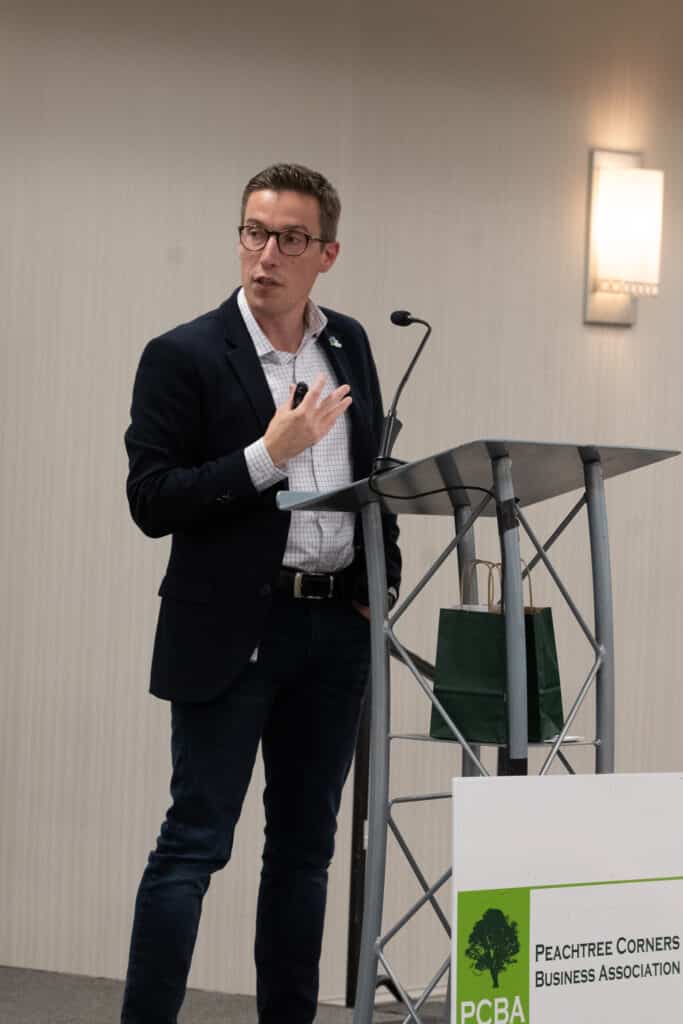
“That speaks to the importance of ensuring that we have a great community,” he said. “So at Partnership Gwinnett we work with all of our cities, and the county government as well, [on] a kind of a best-practices trip.”
He added that the peer tour allows everyone to know what the neighboring communities are doing and share the good news.
“We will take all of these elected officials, but also city staff, to different cities across the Southeast,” he said. “Last year, I believe they went to Huntsville, and have been to Greenville, Chattanooga — all cities that have done some really cool redevelopments that have taken their city to the next level. Our goal is to learn from them.”
Related
Business
Two Peachtree Corners Business Leaders Named Finalists for EY Entrepreneur Award
Published
3 weeks agoon
April 23, 2025
Ernst & Young’s Entrepreneur Of The Year celebrates ambitious entrepreneurs who are shaping the future
Ernst & Young LLP (EY US) recently announced the finalists for the prestigious Entrepreneur Of The Year 2025 Southeast Award, and two local, Peachtree Corners business leaders — David Quirk, president and CEO of DLB Associates Consulting Engineers PC and Erin Hanson, founder and CEO of Guardian Sports — made the list.
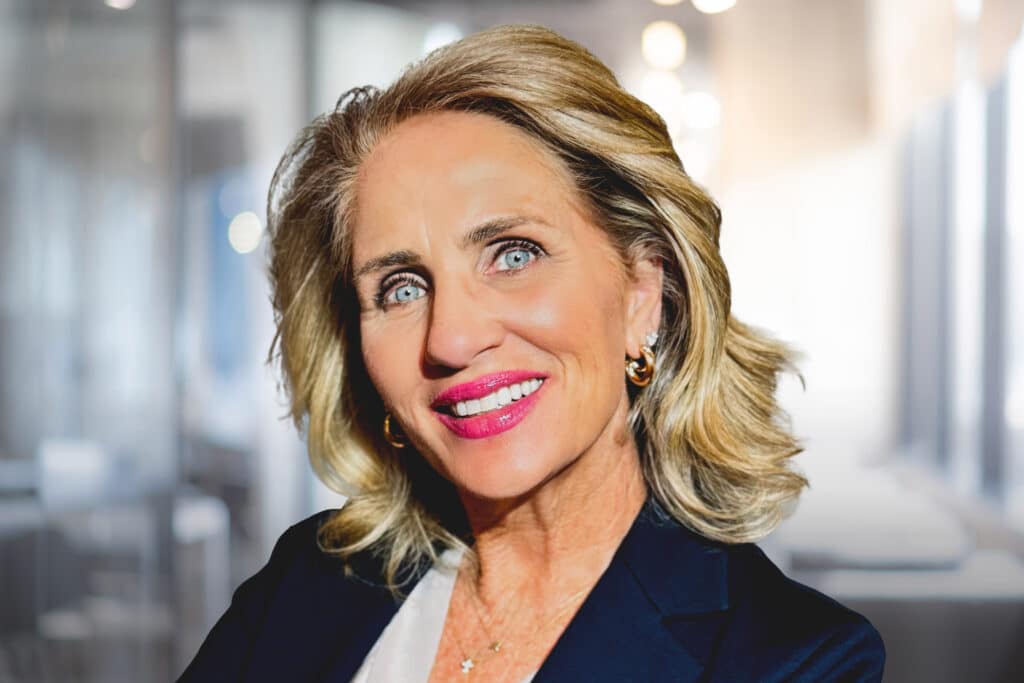
Hanson’s Guardian Sports is a family-owned company dedicated to serving athletes through safety and performance improvements in sports equipment. Major products include the Guardian Cap, PEARL ball and Guardian Infill serving the sports industry.
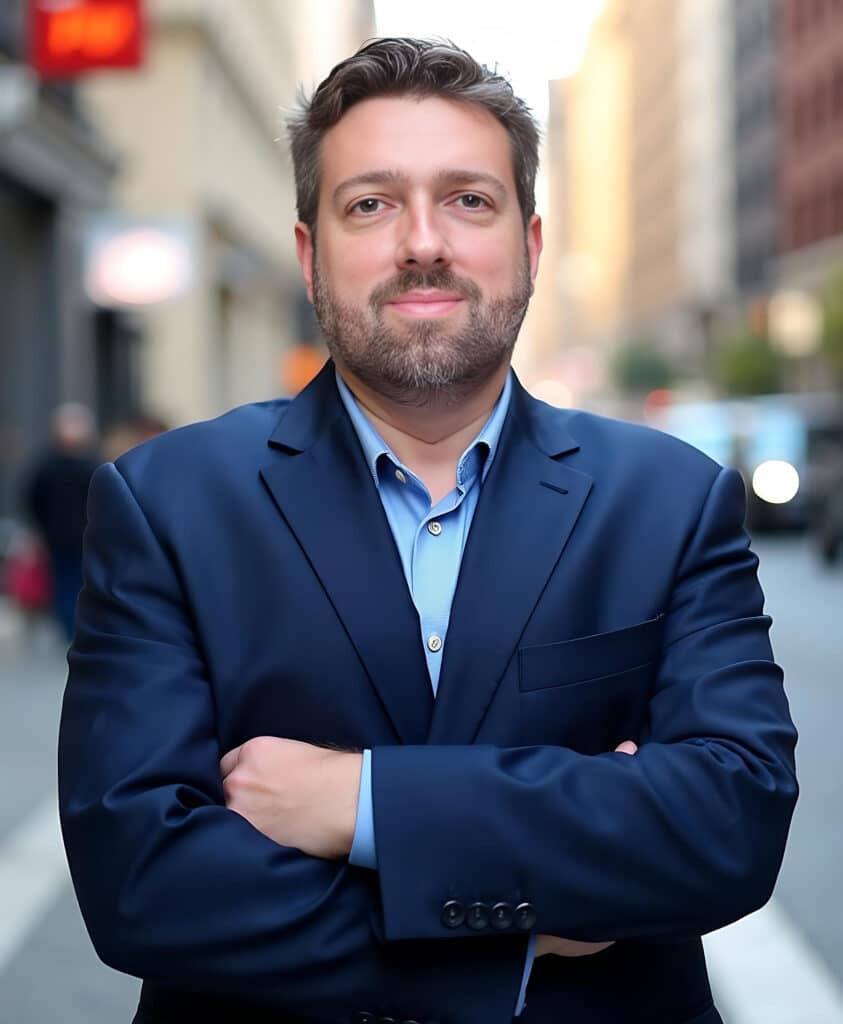
DLB Associates is a U.S.-based consulting engineering firm specializing in mission-critical and complex built environments. With more than 40 years of expertise, DLB delivers innovative, technology-driven solutions in engineering, commissioning and operations worldwide.
Celebrating entrepreneurial leaders
Now in its 40th year, Entrepreneur Of The Year recognizes the bold leaders who disrupt markets through the world’s most ground-breaking companies, revolutionizing industries and making a profound impact on communities. The program honors those entrepreneurs whose innovations shape the future and pave the way for a thriving economy and a hopeful tomorrow.
The Southeast program celebrates entrepreneurs from Alabama, Georgia, North Carolina, South Carolina and Tennessee.
An independent panel of judges selected 36 finalists for their entrepreneurial spirit, purpose, growth and lasting impact in building long-term value.
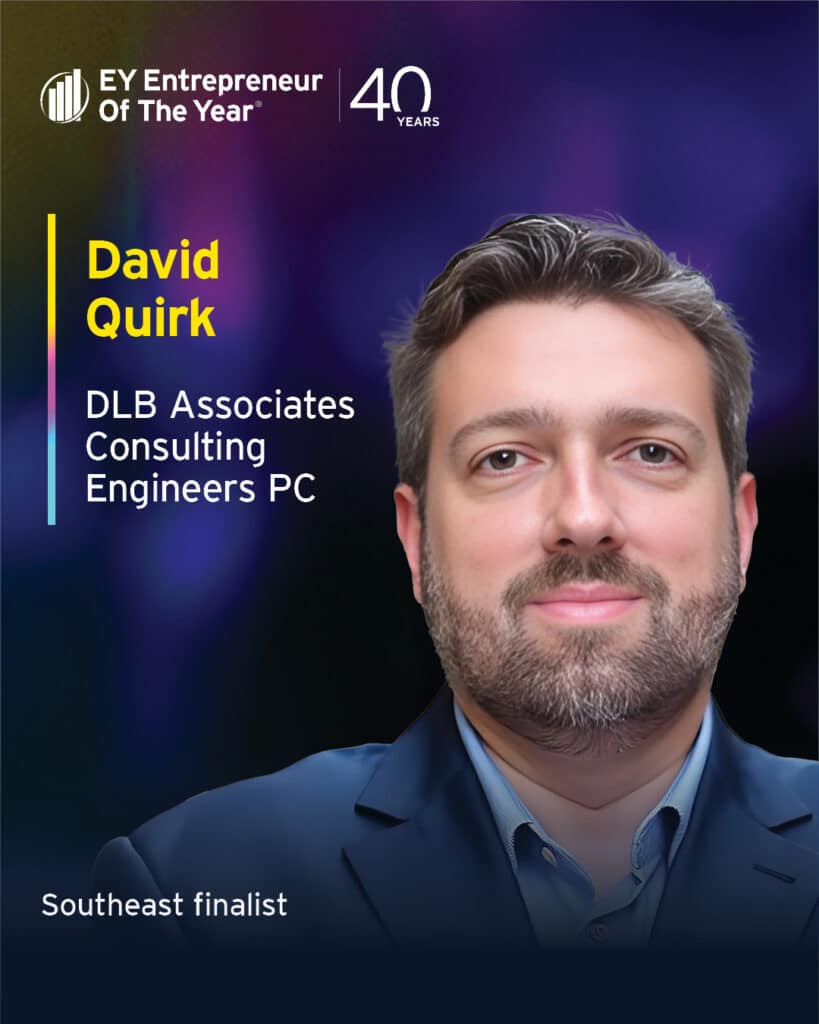
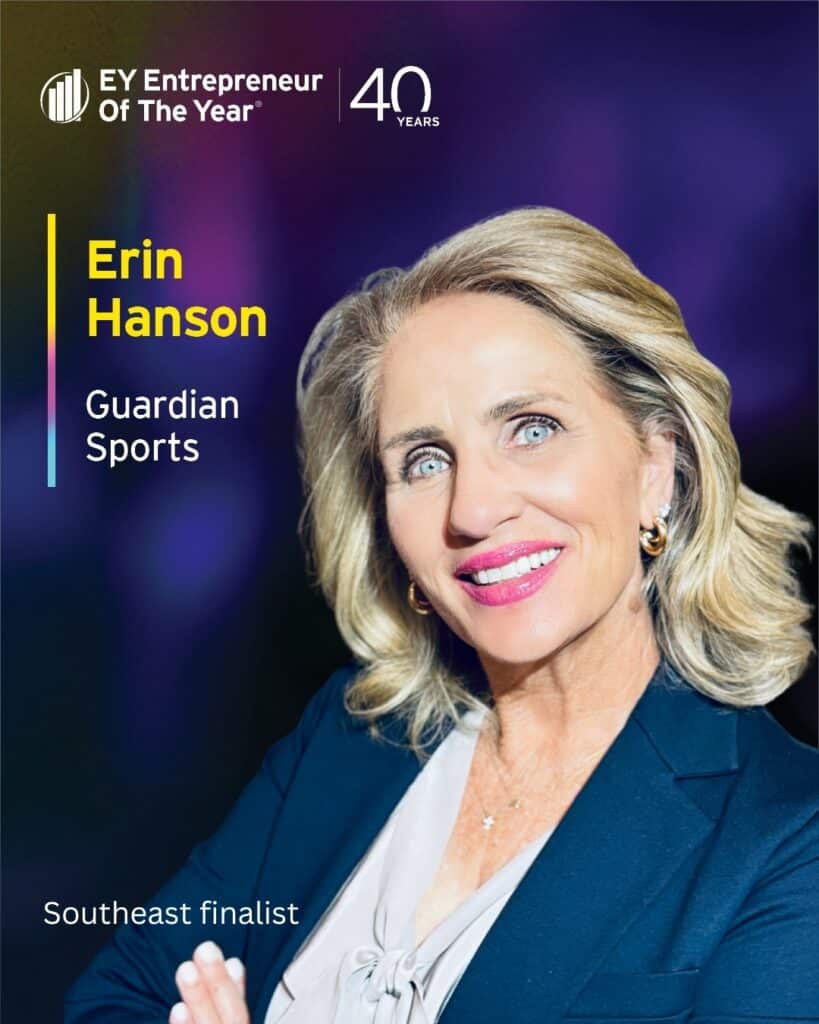
“This year’s finalists are leading examples of innovation, perseverance and resilience, illuminating paths to a brighter future for their industries and communities,” said Chevy Arnold, Entrepreneur Of The Year Southeast Program co-director.
“Their commitment to excellence transforms challenges into opportunities, inspiring us all,” added Kimberly Kicklighter, Entrepreneur Of The Year Southeast Program co-director.
Entrepreneur Of The Year honors many different types of business leaders for their ingenuity, courage and entrepreneurial spirit.
The program showcases original founders who bootstrapped their business from inception or who raised outside capital to grow their company; transformational CEOs who infused innovation into an existing organization to catapult its trajectory; and multigenerational family business leaders who reimagined a legacy business model to strengthen it for the future.
Including Quirk and Hanson, the 2025 Southeast finalists are:
- Marc Hodulich | 29029 | Atlanta, Georgia
- Damon Stafford | Alpine Intel | Charlotte, North Carolina
- Lou Hensley | Aspida | Durham, North Carolina
- Matthew Dent | Buffalo Rock Company | Birmingham, Alabama
- Melanie Little | Colonial Pipeline Company | Alpharetta, Georgia
- Will Bartholomew | D1 Training | Franklin, Tennessee
- Rene Diaz | Diaz Foods | Atlanta, Georgia
- David Quirk | DLB Associates Consulting Engineers PC | Peachtree Corners, Georgia
- Markus Scott | EyeQ Monitoring | Atlanta, Georgia
- Jon Gosier | FilmHedge | Atlanta, Georgia
- John Fitzpatrick | Force Marketing | Atlanta, Georgia
- Dr. Barry Patel | Galt Companies | Atlanta, Georgia
- Dr. Wade Smith | Galt Companies | Atlanta, Georgia
- Charles Gillespie | Gambling.com Group | Charlotte, North Carolina
- Kevin McCrystle | Gambling.com Group | Charlotte, North Carolina
- Mike Griffin | Griffin Brothers Companies | Cornelius, North Carolina
- Erin Hanson | Guardian Sports | Peachtree Corners, Georgia
- Dan Beem | Hissho Sushi | Charlotte, North Carolina
- Aaron Siegel | Home Team BBQ | Charleston, South Carolina
- Marc Murphy | Ignite Digital Services | Charleston, South Carolina
- Miller Chalk | Inglett & Stubbs, LLC | Mableton, Georgia
- Liza Rodewald | Instant Teams | Southern Pines, North Carolina
- Stephen Andresen | McClancy Foods & Flavors | Fort Mill, South Carolina
- Travis LeFever | Mission Mobile Medical Group | Greensboro, North Carolina
- Cyrus Mojdehi | Northway Homes | Charlotte, North Carolina
- Connor Ryan | NutraSky | Alpharetta, Georgia
- Fritz Owens | OTR Solutions | Roswell, Georgia
- Christopher Chuang | Relay, Inc. | Raleigh, North Carolina
- Kurt Jacobus | restor3d, Inc. | Durham, North Carolina
- Tom Kendrot | Shearwater Health | Nashville, Tennessee
- Teak Shore | Southern Lighting Source | Cumberland, Georgia
- Cindy Eckert | Sprout Pharmaceuticals | Raleigh, North Carolina
- Bryan Moore | TalkShopLive Inc. | Nashville, Tennessee
- Tina Moore | TalkShopLive Inc. | Nashville, Tennessee
- Igor Marinelli | Tractian | Atlanta, Georgia
- Joan Butters | Xsolis | Franklin, Tennessee
You can learn more about the finalists at ey.com/en_us/entrepreneur-of-the-year-us/southeast/winners-finalists.
Regional award winners will be announced on June 25 during a special celebration. The winners will then be considered by the national independent panel of judges for the Entrepreneur Of The Year National Awards, which will be presented in November at the annual Strategic Growth Forum®, one of the nation’s most prestigious gatherings of high-growth, market-leading companies.
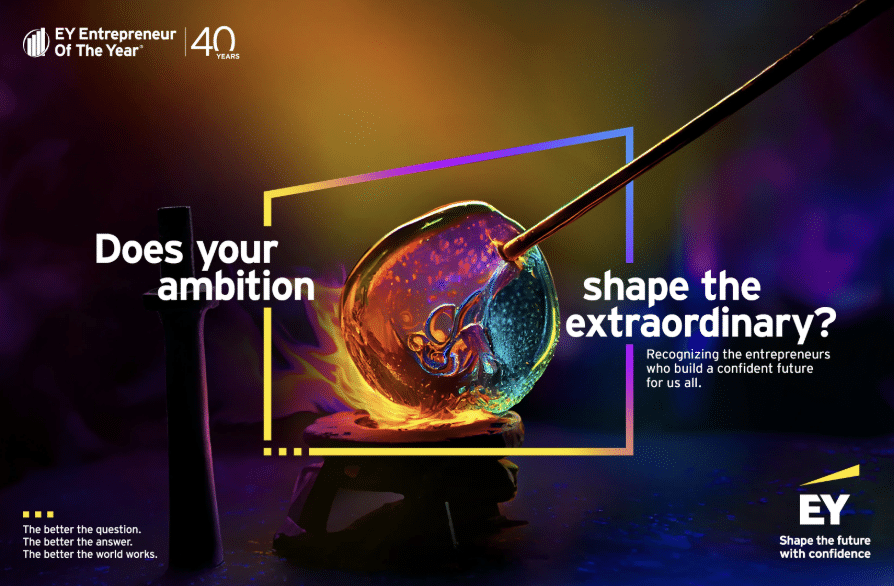
About Entrepreneur Of The Year
Founded in 1986, Entrepreneur Of The Year has celebrated more than 11,000 ambitious visionaries who are leading successful, dynamic businesses in the U.S., and it has since expanded to nearly 60 countries globally.
The U.S. program consists of 17 regional programs whose panels of independent judges select the regional award winners every June. Those winners compete for national recognition at the Strategic Growth Forum® in November where national finalists and award winners are announced.
The overall national winner represents the U.S. at the EY World Entrepreneur Of The Year™ competition.
For more about the award, visit ey.com/us/eoy.
Related
Business
SCB Construction Group Partners with CGA Reps on New Peachtree Corners HQ
Published
4 weeks agoon
April 15, 2025
SCB Construction Group, freshly rebranded from SteelCo, secures construction project with CGA Reps for new office HQ in Peachtree Corners
SCB Construction Group has announced a strategic partnership with CGA Reps to build a new office headquarters in Peachtree Corners. The project, encompassing approximately 26,000 square feet of innovative workspace, marks a significant milestone in advancing CGA Reps’ corporate vision while showcasing SBA Construction Group’s commitment to delivering transformative construction solutions.
In collaboration with Oakley Real Estate Partners — serving as developers of the project on behalf of CGA Reps — this venture reflects a united effort to bring cutting-edge design (from Smallwood architecture firm) and operational excellence to the commercial kitchen equipment industry.
The announcement follows several high-profile projects for SCB Construction Group in 2024, including a 72,500-square-foot manufacturing center and headquarters for Process Equipment & Controls, an impressive interior build-out for Courtesy Ford Conyers’ commercial service center and the Phase 1 completion for StoreEase Loganville — recently honored as a 2024 Smart Facility of the Year by Modern Storage Media.
A bold new chapter for CGA Reps
The new 25,890-square-foot headquarters is designed to be more than just a workplace — it is envisioned as an inspiring environment that serves both client engagements and employee creativity. CGA Reps is recognized as an industry expert in commercial kitchen equipment, representing leading manufacturers, warehousing, distributing and installing everything from fryers to commercial walk-in freezers.
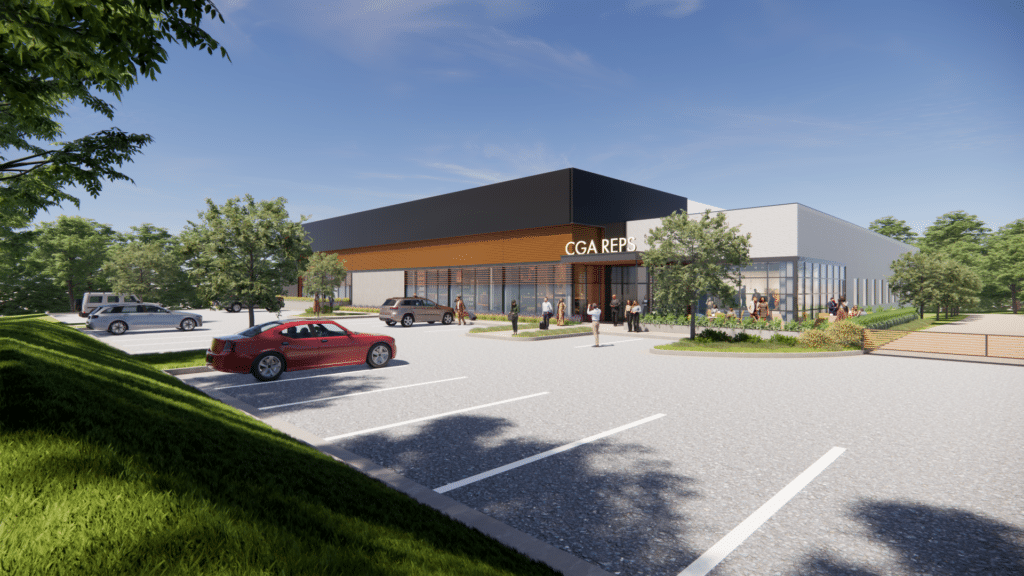
The facility’s design reflects this expertise, featuring a dedicated approximately 9,000-square-foot showroom kitchen that will host equipment demonstrations, tradeshows and webinars. This dynamic space will allow CGA Reps to showcase its comprehensive product range and provide clients with hands-on experiences of the latest commercial kitchen innovations.
A standout feature of the project is its innovative approach to stormwater management. With the site comprising only three acres, sufficient space for a traditional detention pond does not exist. To overcome this challenge, the design includes an underground detention system located beneath the truck court to efficiently handle all stormwater runoff.
This solution not only maximizes the use of the available land but also reinforces CGA Reps’ commitment to sustainable practices.
“We are excited to embark on this project with CGA Reps,” said Jay Bailey, CEO of SCB Construction Group. “This partnership underscores our commitment to customer excellence in design and construction, and it is a testament to the trust our clients place in our ability to deliver projects that not only meet but exceed expectations.”
Delivering excellence through proven expertise
SCB Construction Group’s track record in 2024 has been nothing short of remarkable. Earlier in the year, the company completed a 72,500 square foot manufacturing center for Process Equipment & Controls, integrating office space within a dynamic production facility.
This project was celebrated for its innovative design that balanced operational efficiency with a modern aesthetic, utilizing IMP panels to mimic tilt-up concrete, setting new standards for manufacturing environments.
Similarly, the interior build-out for Courtesy Ford Conyers’ commercial service center demonstrated SCB Construction Group’s ability to transform conventional spaces into functional and attractive environments that cater to both customer and staff needs.
The company’s commitment to quality and precision was again evident in the successful Phase 1 completion for StoreEase Loganville. This project, which recently earned the distinction of a 2024 Smart Facility of the Year by Modern Storage Media, highlights SCB Construction Group’s forward-thinking approach to construction and design, incorporating smart technologies and design that enhance sustainability and operational efficiency.
A rebranding that reflects a vision for the future
In a move that signals its evolution and growth, SCB Construction Group has recently rebranded from its former identity, SteelCo Buildings, as it spins off its construction division. This strategic rebranding is not merely cosmetic — it represents a renewed commitment to capabilities, credibility and client-focused service.
The refreshed brand is anchored by a new tagline “Deep Expertise, High Expectations” and a clear brand promise that communicates the company’s mission: to craft exceptional construction experiences based on precision, innovation and trust.
“Our rebranding is about more than just a new name or logo; it’s a renewed promise to our clients and communities,” explained Robert Lee, marketing director at SCB Construction Group. “We believe that our updated brand identity, including our invigorated tagline and mission statement, encapsulates our dedication to pushing the boundaries of design and construction. It reflects our commitment to creating spaces that are as inspiring as they are functional.”
Transforming spaces to inspire and connect
The new headquarters for CGA Reps is expected to become a landmark facility in Peachtree Corners. Beyond its impressive architectural design and advanced construction techniques, the building is planned as a hub for innovation and collaboration.
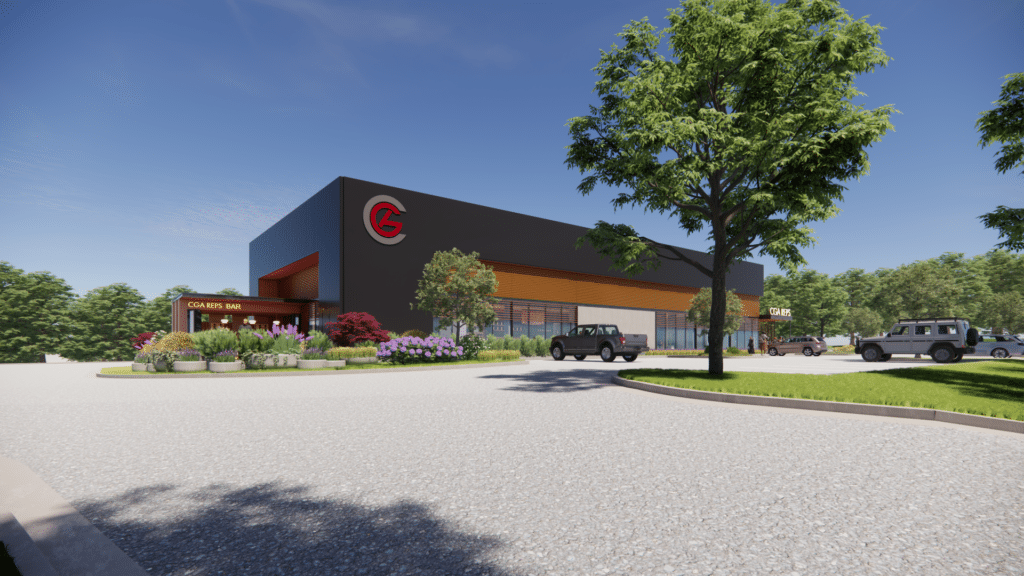
The interior build-out will include dynamic client reception areas, interactive meeting rooms, and dedicated spaces designed to foster creativity and teamwork among employees. The layout is crafted to ensure that every area of the facility contributes to a productive and inspiring work environment.
“By investing in this state-of-the-art facility, CGA Reps is making a strong statement about the future of work,” said Bryan Young, VP of construction at SCB Construction Group. “Our team is dedicated to designing and building spaces that not only serve the immediate needs of our clients but also create environments that motivate and inspire. The new headquarters will be a testament to that vision.”
Looking ahead
The partnership between SCB Construction Group and CGA Reps marks a significant step forward for both companies. As SCB Construction Group continues to build on its legacy of excellence and innovation, this project is poised to set a new benchmark for modern office headquarters design in the region.
With a strategic focus on creating spaces that inspire, connect and drive success, the future looks promising for both SCB Construction Group and its esteemed partner, CGA Reps.
For more information on the new headquarters project or to learn more about SCB Construction Group’s portfolio, visit scbcg.com.
Related
Read the Digital Edition
Subscribe
Keep Up With Peachtree Corners News
Join our mailing list to receive the latest news and updates from our team.
You have Successfully Subscribed!

Digital Edition

Official City Merchandise Line Debuts This Saturday at Town Green

Paul Duke STEM High School Student Earns CGO Scholarship

World Blood Donor Day Starts Here: Theo’s Miracle, Katherine’s Mission [Podcast]

Executive Function: A Tribute to Working Moms

Peachtree Corners Grows Business Opportunities Through Economic Development

Simpson Elementary Marks Exceptional Children’s Week

Peachtree Corners Hosts Discussion About the Future of Local Policing

Atlanta’s Dog Howl-O-Ween Festival Moving to Peachtree Corners for 2025

D1 Training Brings New Fitness Concept to Peachtree Corners

Peachtree Corners Hosts Discussion About the Future of Local Policing

City of Peachtree Corners Awarded Certificate of Achievement From GFOA for Seventh Straight Year

Simpson Elementary Marks Exceptional Children’s Week

Executive Function: A Tribute to Working Moms

Official City Merchandise Line Debuts This Saturday at Town Green

Peachtree Corners Grows Business Opportunities Through Economic Development

Light up the Corners [Video]

Capitalist Sage: Business Leadership in Your Community [Podcast]

Cliff Bramble: A Culinary Adventure through Italy

Top 10 Brunch Places in Gwinnett County

A Hunger for Hospitality

THE CORNERS EPISODE 3 – BLAXICAN PART 1

Top 10 Indoor Things To Do This Winter

The ED Hour: What it takes to Remove Barriers from Education







